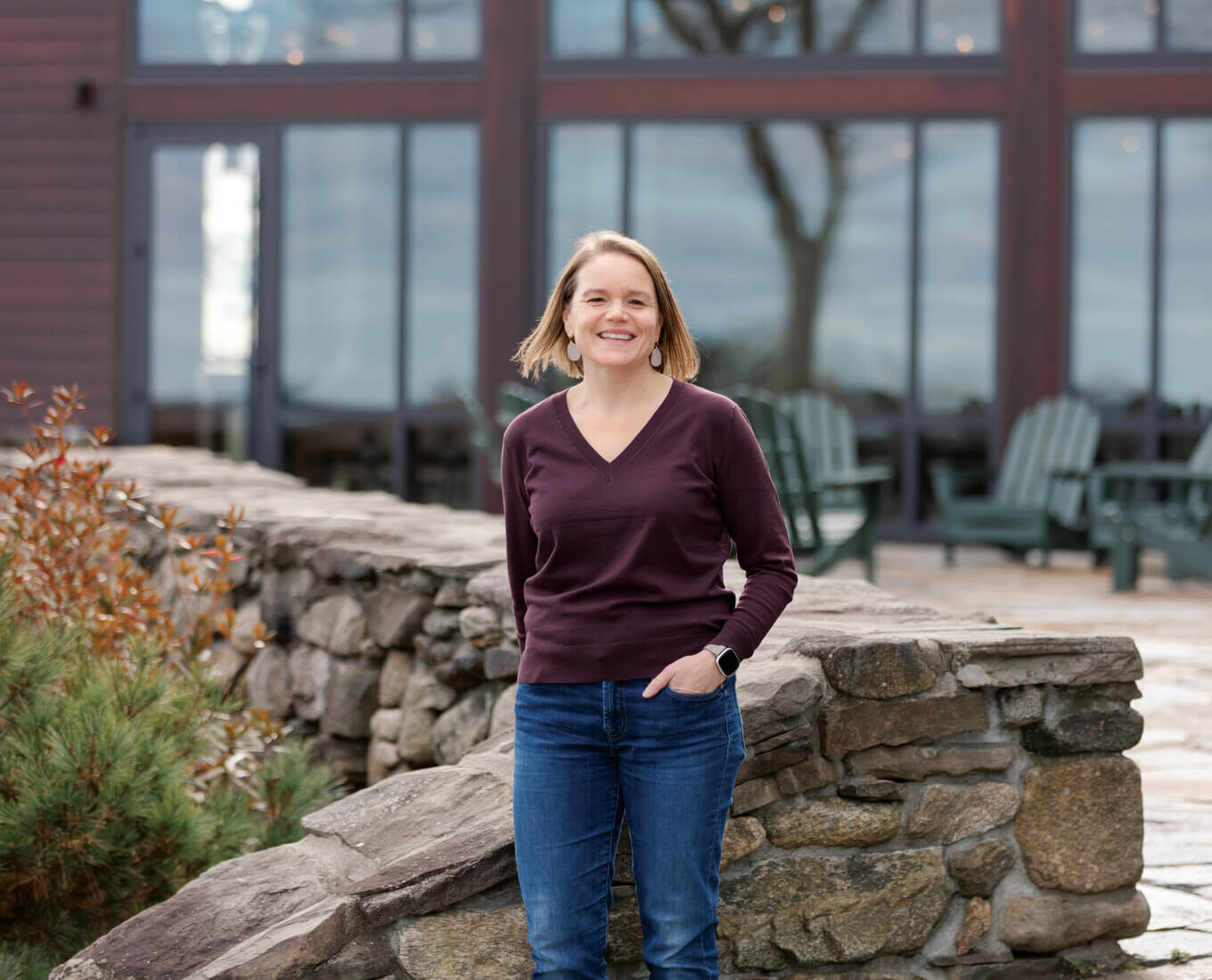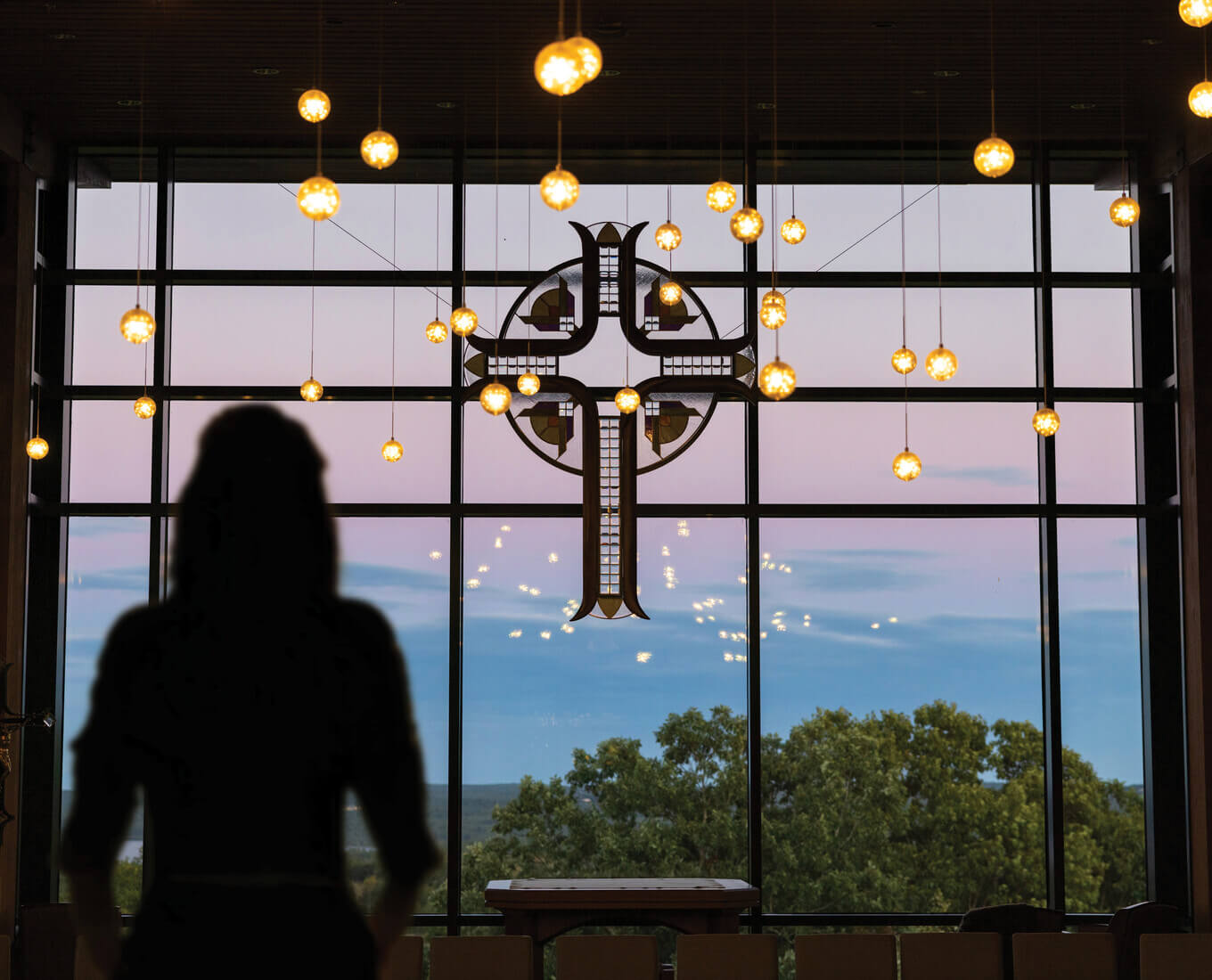"Why are all the good ideas already taken?"
The rhetorical — and exasperated — question came from a senior during a three-minute brainstorm in which students in Holy Cross' new Entrepreneurship course were asked to create a list of nagging everyday problems.
Broken up into smaller groups, the students dug into each other's lists — which included everything from the difficulty of finding vegan food to the expensiveness of textbooks — doing quick Google searches to see whether another company had already run with the idea or building off each other to come up with something more unique.
"Find the connective tissue," Ja-Naé Duane, entrepreneur-in-residence and the course's lecturer, challenged the class. "What major themes or similar pain points do you see among your ideas?"
The collaborative exercise, a staple feature of this first-time course, aimed to parse out what larger topics students want to explore through entrepreneurial ventures that will serve as the semester's culminating project. Exercises like these help the students connect areas that they are passionate about with the opportunity to turn it into a venture or even find a sustainable business model.
Overall, the course aims to give students a foundation to understand how and why businesses are started and the role that entrepreneurship and entrepreneurs play in today's global economy. The course then dives deeper into the entrepreneurial mindset, challenging students to experience firsthand the steps involved in developing a successful business idea through the creation of their own.
Whether creating a product to help lacrosse players shoot more accurately or solving common issues faced while traveling, students learn to identify and anticipate the common challenges entrepreneurs experience and how to make decisions with incomplete information in environments characterized by rapid change and chronic resource scarcity.
Duane emphasizes that entrepreneurship, while complex, is a manageable process, and the lessons learned can be applied in virtually any organizational setting.
"A lot of the skills that students will learn throughout the semester are skills students will need within a larger corporation. The future of work and those skills are changing, so employees need to learn how to be flexible, to have lean thinking, and to know how to test their projects, hypotheses or campaigns so that they're saving the company money, and they can be more efficient."
Duane pushes students to start building these skills from day one.
"I run the class like I run a venture," she says, giving students frequent opportunities for co-creation.
The course is also project-driven, allowing students to analyze successful and failed ventures from an academic perspective, while also participating in exercises, or "challenges," that are more practical and application-based.
While there is no shortage of ideas in this course, Duane is more concerned with students walking away understanding entrepreneurship as a way of thinking and an attitude, dispelling the notion that entrepreneurship belongs exclusively to the business world.
"What political economist Schumpeter called 'creative destruction' is really the essence of entrepreneurship," Duane says. "So, to me, to consider entrepreneurship just business is no longer valid.
"What isn't clear to a lot of people is the connection between entrepreneurship and liberal arts," she adds, explaining it came as no surprise that there was so much interest in the course, which drew students from a wide range of academic backgrounds.
"As someone with a fine arts background," Duane shares, "it's important to help students harness their creativity, the way they thoroughly think through the context of a problem and really look at all of the elements, not only just financial, but social, economic and the impact on the world. That 360-degree lens is the essence of any liberal arts education. This approach, reflected in entrepreneurship, helps students find where the connections are between their major, skills and the life that they want to lead."
Course Catalog
 Students in Duane's Entrepreneurship course mark their favorite venture ideas on their classroom chalkboard. Photo by Tom Rettig
Students in Duane's Entrepreneurship course mark their favorite venture ideas on their classroom chalkboard. Photo by Tom RettigProfessor: Ja-Naé Duane
Department: Center for Interdisciplinary Studies
Description: This course provides a foundation for understanding how and why businesses are started by identifying and exploring the discreet steps involved in transforming an often unrefined idea into a clearly articulated business model before developing a launch plan designed to get it into the market as quickly and inexpensively as possible. The focus of the course is on the creation of new ventures, the ways they come into being and the factors associated with their success.
Meeting Times: Tuesday, Thursday | 9:30-10:45 a.m.
Classroom: Stein 216
Required Reading
- "The Startup Equation" by Steven Fisher and Ja-Naé Duane, 2015
- Additional readings by entrepreneurs, venture capitalists, communications experts
Assignments
- "Challenges" that ask students to create plans addressing an issue faced by an organization
- Creation of a new venture to present as final semester project
- Class participation
Grades: Group projects, peer reviews, participation
Prerequisites: None, open to all students
About The Professor
Ja-Naé Duane is the entrepreneur-in-residence and a lecturer in the Ciocca Office of Entrepreneurial Studies (COES). An award-winning innovator with over 20 years of experience, Duane has aimed to make life better for as many people as possible by focusing on revolutionary ideas and developing programs that impact our world. Currently, she is the co-founder of The Revolution Factory, a global network that enables innovation ecosystems in corporations, governments and universities.
The author of the best-seller “The Startup Equation” and “How to Start Your Business with $100,” Duane excels at advising startups because she understands from personal experience what it means to be a social entrepreneur. Over the years, her work has caught the attention of The Associated Press, NPR, Classical Singer Magazine, The Boston Globe and Businessweek. Duane is an angel investor and advisor for a number of startups, including Singularity University.
Duane has been integral in introducing new entrepreneurial programming at Holy Cross, including the creation of the NYC Startup experience for students during spring break and a summer course on social entrepreneurship. Duane has also launched a mentoring program for entrepreneurial students, worked with Career Development to provide more startup opportunities for students and collaborated with SaderSandbox and the Ignite Fund to provide more funding for student ventures.
Written by Evangelia Stefanakos '14 for the Spring 2018 issue of Holy Cross Magazine.
About Holy Cross Magazine
Holy Cross Magazine (HCM) is the quarterly alumni publication of the College of the Holy Cross. The award-winning publication is mailed to alumni and friends of the College and includes intriguing profiles, make-you-think features, alumni news, exclusive photos and more. Visit magazine.holycross.edu/about to contact HCM, submit alumni class notes, milestones, or letters to the editor.


